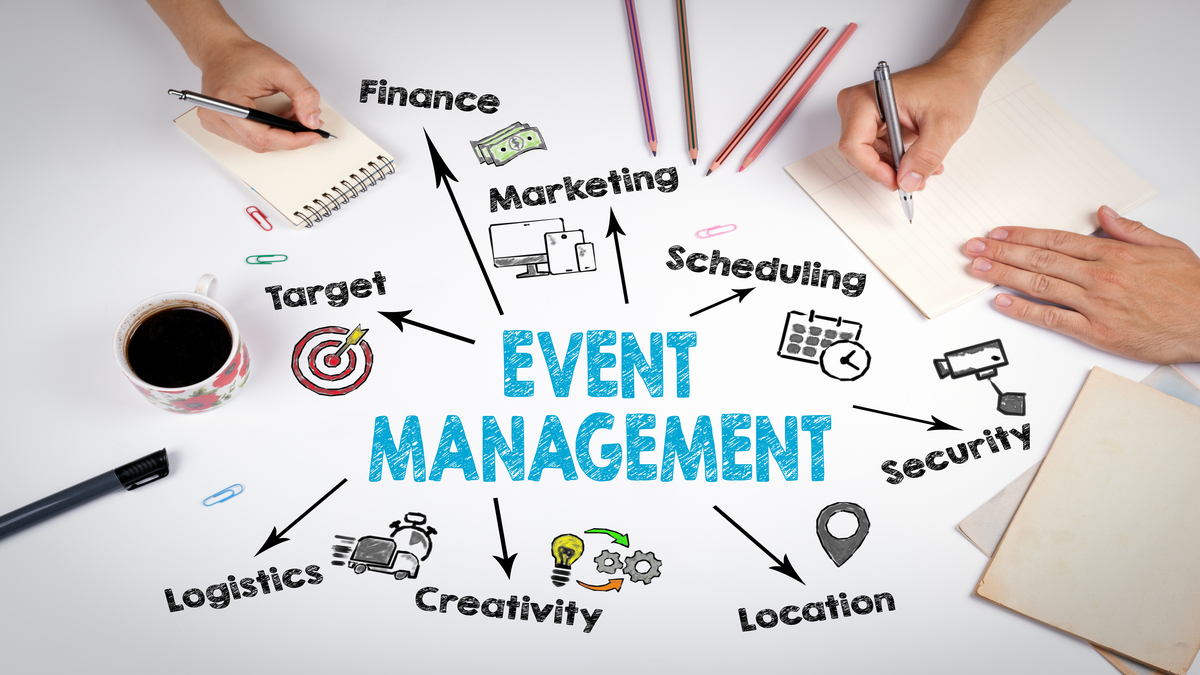When you’re working in the hospitality industry, it’s easy to get pulled into planning events that often require more time than they’re worth. But no matter how much your customers love your specials or how many of your coworkers ask for a new happy hour, you shouldn’t give in to the extra work. If you’re looking to cut back on unnecessary events and leave only the ones that bring in cash instead of costing you time, here are some helpful Tips for Event and Wedding Planning from an experienced event planner:
Don’t micromanage your staffers
Wait, what? We know this sounds like something you’re probably not supposed to do as a manager, but it can be especially difficult when you’re just starting out as an event planner. We’ve all been there: You’re too busy yourself to help your staff get everything done, and you’re worried you’ll miss out on something important if you step in and help. But it’s better to let your employees do their jobs than to take over themselves.

If they’re overwhelmed or just plain busy, they’ll appreciate the chance to get things done on their own terms and give you some slack later on. Of course, there are some exceptions to this rule: If you suspect staff members of messing up repeatedly, you should always step in and help them.
Showing up is Half the Battle
You’ve got all the guests excited for your next big event, but if you don’t get on-site and prepare, you’ll miss out on all the fun. That doesn’t mean you have to show up hours before guests arrive and transform the venue, but you should make sure you have all the food and drink you need, as well as tables, chairs, and decorations ready for the event to go smoothly.
If you have to scramble at the last minute to get tables set up for guests, you’re liable to drop a glass or spill a drink. A few hours before the event, you should also put the settings up and finish cleaning the space so that when guests arrive, they don’t arrive to a mess. While it’s not mandatory, it’s always good to offer your guests some free food or drink as they arrive. This lets them know you appreciate their business and helps keep your customers happy as well.
Have a plan, no matter what happens
Whether you’re planning a small or large event, you can’t just wing it. Not only will your guests be less likely to have the fun experience they’re expecting, but you’ll find yourself scrambling to figure out what happened and make it right. It’s worth investing the time in planning a few months in advance to come up with a basic schedule of events. Even if your main focus is food and drink, you should have a general idea of what will be happening when so there’s no last-minute scramble to get things in order.

A good guideline is to start an event with a slow-paced activity so everyone feels welcome and is included. Then move into a higher-energy activity that gets the crowd excited and ends with a relaxation activity. You can change things up a little in the middle of each event if you want, but the general flow is a good guideline to start with.
Always be looking for an opportunity to make money
There’s nothing wrong with fundraising or building goodwill among your community, but these events often require a lot of work and often only bring in a small amount of money. If you’re asked to help organize one of these events, politely decline and offer to help with another fundraising effort instead. If you’re working with an event sponsor or trying to get support from a community organization, it’s best to let them know upfront exactly what you can do and cannot do for their event.
While it’s not a bad idea to have a few ideas for events in mind for the future, the best event planning is situational. You can’t just plan for the next big event regardless of what’s happening locally. You have to keep your ears open for opportunities, be ready to make adjustments on the fly if that opportunity doesn’t pan out, and find a way to make it work for your business.
Set realistic expectations before you start planning
If you’re starting from scratch, you should set realistic expectations before you even start planning. You can’t expect to know everything you need to know before you dive in. Don’t expect to be an expert on everything – you’re not. You just have to know more than your guest does about what he wants.
Guest’s expectations for the event will be determined by a variety of factors, including personal taste, the venue, and the organizer’s experience. If someone gives you a specific request, don’t be afraid to ask the customer what he wants. Sometimes guests aren’t quite sure of themselves. Don’t just follow the crowd. Be an individual. Be yourself. That’s what makes you special.
Be flexible when working with clients
The best thing you can do as an event planner is to make your clients happy. If you’re working with a restaurant with a strict budget and a set schedule for their events, don’t expect to be able to drastically change things up or do anything unexpected. It’s okay to say no to a request or two if it would compromise the overall timeline of your event or would be too expensive for your client.

If you’re working with a client on a project-based discount, be friendly and open to negotiating a price reduction. As you’re working with clients, don’t be afraid to ask for help or to delegate tasks. Even if you’re the lead planner, it’s okay to delegate events and tasks to your crew. It’s actually a good way to show your support and make sure everyone has a chance to contribute to the event.
Final thoughts
Event planning can be an incredibly exciting and rewarding way to make money, but it also requires a lot of work. There are a lot of factors to consider when planning an event, and it’s important to know when to ask for help and to take on some of the tasks yourself. If you do these things, you’ll be able to enjoy the event planning process while making a good amount of money. Here’s a bonus list of The best Wedding Destinations around the world for you 🙂
























